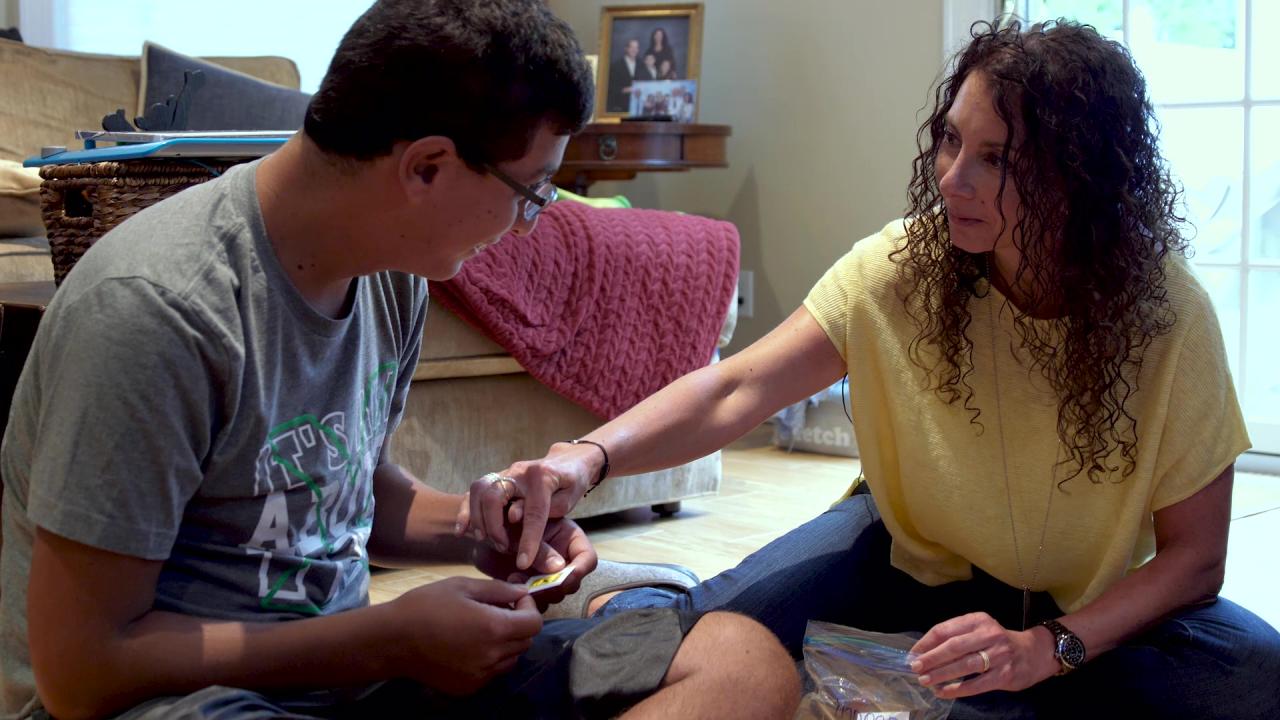
Breaking Down Barriers for Families Affected by Fragile X Syndrome
UC Davis is harnessing its unique strengths in health, neuroscience, engineering, education, community engagement, and social sciences to develop innovative solutions that empower families affected by autism and related disorders, such as fragile X.
Seventeen-year-old Justin Silver was five when he was diagnosed with fragile X syndrome, the most common cause of inherited intellectual disability and the leading single-gene cause of autism. Justin’s parents, Brian and Shari Silver, had noticed Justin was developing differently than their daughter, but it wasn’t until genetic testing that they finally learned fragile X was the underlying cause.
The Silvers quickly set out to learn everything they could about fragile X, which is caused by an alteration in the FMR1 gene. Through this process, the Silvers quickly learned that faculty at the University of California, Davis Medical Investigation of Neurodevelopmental Disorders (MIND) Institute were leading the way in cutting-edge research and treatment for individuals living with Autism Spectrum Disorder (ASD) and fragile X.
Despite living across the country in New York, the family was willing to do whatever they could for Justin. They traveled to the UC Davis MIND Institute in Sacramento, Calif., where they met the world’s leading experts in the field.
“We left the MIND Institute with a roadmap for understanding fragile X and how to educate others about Justin’s abilities and his potential. The information we received on that first trip continues to serve us to this day,” said Brian. “Not only was it useful to us as parents, but it helped his teachers at school and even others in our community.”
In fact, the trip was so inspiring to the Silvers, they gathered family and friends together to establish the Fly With Me Fund for other fragile X patients to receive financial support for travel related to pursuing evaluations and treatment, such as at the MIND Institute.
Recently, the Silvers became the first to give to the Autism, Community and Technology initiative, championed by the MIND Institute and benefitting families everywhere affected by neurodevelopmental disorders.
This initiative is one of the UC Davis Big Ideas, which means it is forward-thinking and comprehensive, drawing on experts throughout the university in a variety of fields, to solve one of the most pressing challenges of our time.
Like the Fly With Me Fund, the Big Idea will address – among other issues – one of the most common barriers to care faced by families affected by neurodevelopmental disorders, which is the ability to travel. The change in routine often makes it difficult or impossible to reach appointments outside the home, and care is not adequately available to families in rural or other underserved areas. This Big Idea will drive advances in technology to make it possible for families to receive care no matter where they live.
The Big Idea will go beyond teleconference appointments, online support groups and coaching by developing new technologies to improve the quality of life for families affected by neurodevelopmental disorders across their lifespan. Examples include virtual reality skills development, behavior modification apps and others that could help individuals lead more fulfilling, independent lives. The Big Idea also will be research-focused, gathering data on the success of technology-driven services and using technology to gather data in communities and across the lifespan to better understand these neurodevelopmental disorders.
“We want to be sure that this initiative is successful so that UC Davis can benefit families everywhere,” Shari said.
